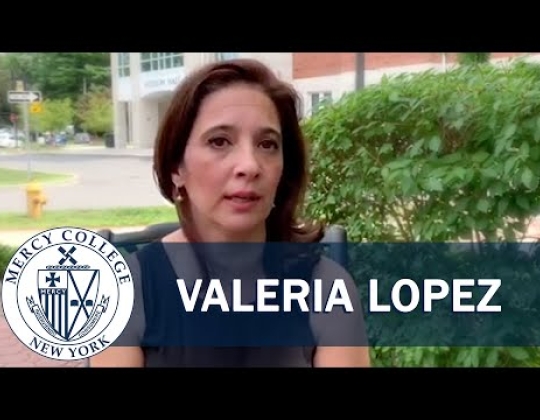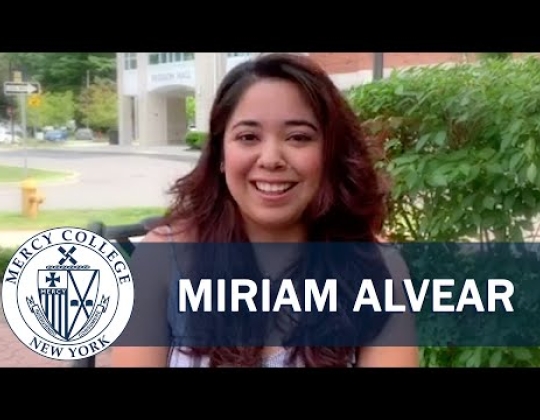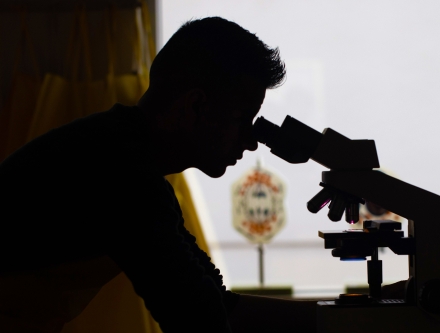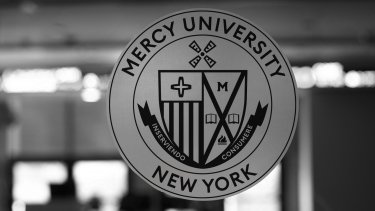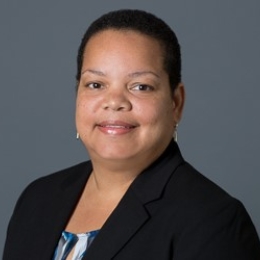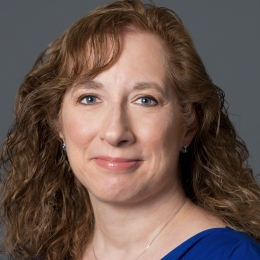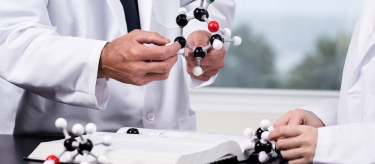
Clinical Laboratory Science
- 129 Credits
- School of Health and Natural Sciences
- Westchester
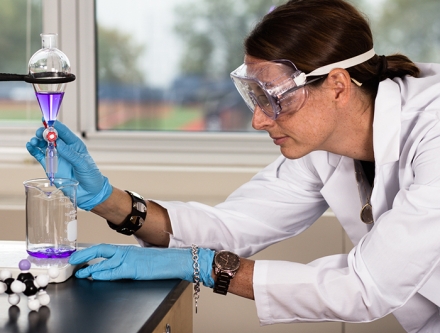
Clinical Laboratory Science Overview
The Clinical Laboratory Science program prepares students to become licensed clinical laboratory technologists. Technologists discover the presence or absence of disease in collected samples, and provide data that help physicians determine the best treatment for a patient.
CLS students will take three years of general education, basic and advanced science courses, followed by a clinical year that combines professional internships at regional hospital clinical laboratories with coursework.
Mercy University’s program in Clinical Laboratory Science is registered with the New York State Education Department as a licensure-qualifying program. The American Society for Clinical Pathology (ASCP) Board of Certification administers certifying examinations and awards certification.
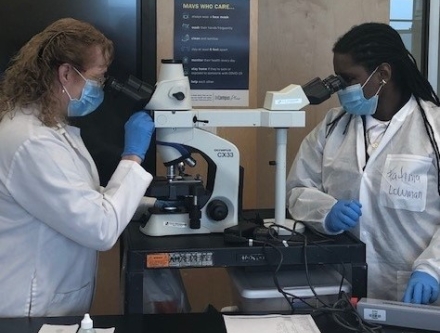
What Can You Do With a Clinical Lab Science Degree in NYC?
A clinical laboratory science degree opens up opportunities in nearly every major field, allowing our graduates to make a difference across the world. Some of our past graduates have continued their education further or broken into the fields of:
- Hospital-based and private diagnostic clinical laboratory scientists*
- Biotechnology
- Laboratory research technicians (academia, industry, or government)
- Pharmaceutical research (Research and Development)
- Education
- Laboratory Informatics
*Because there is currently a shortage of trained medical clinical laboratory scientists available to staff clinical diagnostic laboratories, the employment opportunities in this field are excellent.
Go to the U.S. Department of Labor for a detailed description of this profession and current job outlook projections and national median wage data.
Additional Career Resources
Continuing career development is supported by the following professional organizations:
Clinical laboratory scientists who obtain a master's degree in an area of expertise (e.g. microbiology) or in management or health administration may advance to positions in clinical laboratory administration.
Students can also choose to pursue an advanced practice degree, a Doctorate in Clinical Laboratory Science.

Clinical Laboratory Science Information Sessions
If you are interested in learning more about the Clinical Laboratory Science (CLS) program at Mercy University and the application process, you can attend one of our information sessions with faculty.
The information session will be conducted by either Prof. Michelle Naylor the CLS program director or Prof Linda Sherman-Atkins the CLS clinical coordinator. RSVP to CLSProgram@mercy.edu who will send you the Zoom link for the session.
All Information Sessions will be held at 7pm EST.
- March 18, 2025
- April 15, 2025
- May 20, 2025
- June 17, 2025
- July 15, 2025
Want More Info?
We'd like to hear from you! Get more information.

